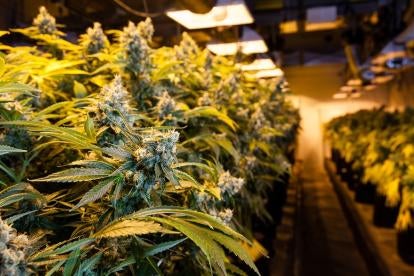The Food and Drug Administration requested comments in a notice published in the Federal Register on April 9, 2018 concerning the “abuse potential, actual abuse, medical usefulness, trafficking, and impact of scheduling changes on availability for medical use” of five marijuana-related substances: cannabis plant and resin; extracts and tinctures of cannabis; delta-9-tetrahydrocannabinol (THC); stereoisomers of THC; and cannabidiol (CBD). The comments will be considered in preparing a response from the United States to the World Health Organization (WHO)’s request for information regarding “the legitimate use, harmful use, status of national control and potential impact of international control” for each of these substances.
The WHO’s Expert Committee on Drug Dependence (ECDD) will be meeting in Geneva from June 4 to 8, 2018, for a special session to review cannabis and its potential to cause dependence, abuse and harm to health as well as its potential therapeutic applications. WHO will make recommendations to the United Nations Secretary-General on the need for a level of international control of these substances. In advance of the June session, the WHO is asking United Nations member states to share their evaluations of cannabis, so the comments received by the FDA will be considered in the scientific and medical evaluations the U.S. submits. WHO is expected to make its official recommendation to the U.N.’s Commission on Narcotic Drugs in mid-2018.
The ECDD also will discuss potential changes to how marijuana is scheduled. The U.N. Single Convention on Narcotic Drugs currently lists marijuana as a Schedule I drug, the classification given to drugs with the highest potential for abuse and no medicinal value. Marijuana never has been subject to formal international review since first being placed in Schedule I of the international agreement enacted in 1961.
Under the United States federal Controlled Substances Act, marijuana is considered a Schedule I drug, meaning that it has (1) a high potential for abuse; (2) no currently accepted medical use in treatment in the United States, and, (3) a lack of accepted safety for use of the drug or other substance under medical supervision. CBD also is a Schedule I drug in the United States.
Cannabis, also known as marijuana, refers to the dried leaves, flowers, stems, and seeds from the Cannabis sativa or Cannabis indica plant. It is a complex plant substance containing multiple cannabinoids and other compounds, including the psychoactive chemical THC and other structurally similar compounds. The principal cannabinoids in the cannabis plant include THC, CBD, and cannabinol. Marijuana is the most commonly used illicit drug in the United States.
Any change in marijuana’s classification under international drug control treaties may influence the way marijuana is classified in the United States. Employers who are opposed to marijuana legalization should consider submitting comments.
Anyone may comment online by clicking here (click on “Comment Now”), or by sending a comment by mail (click on the link to obtain the address). Comments are due by April 23, 2018.




 i
i


